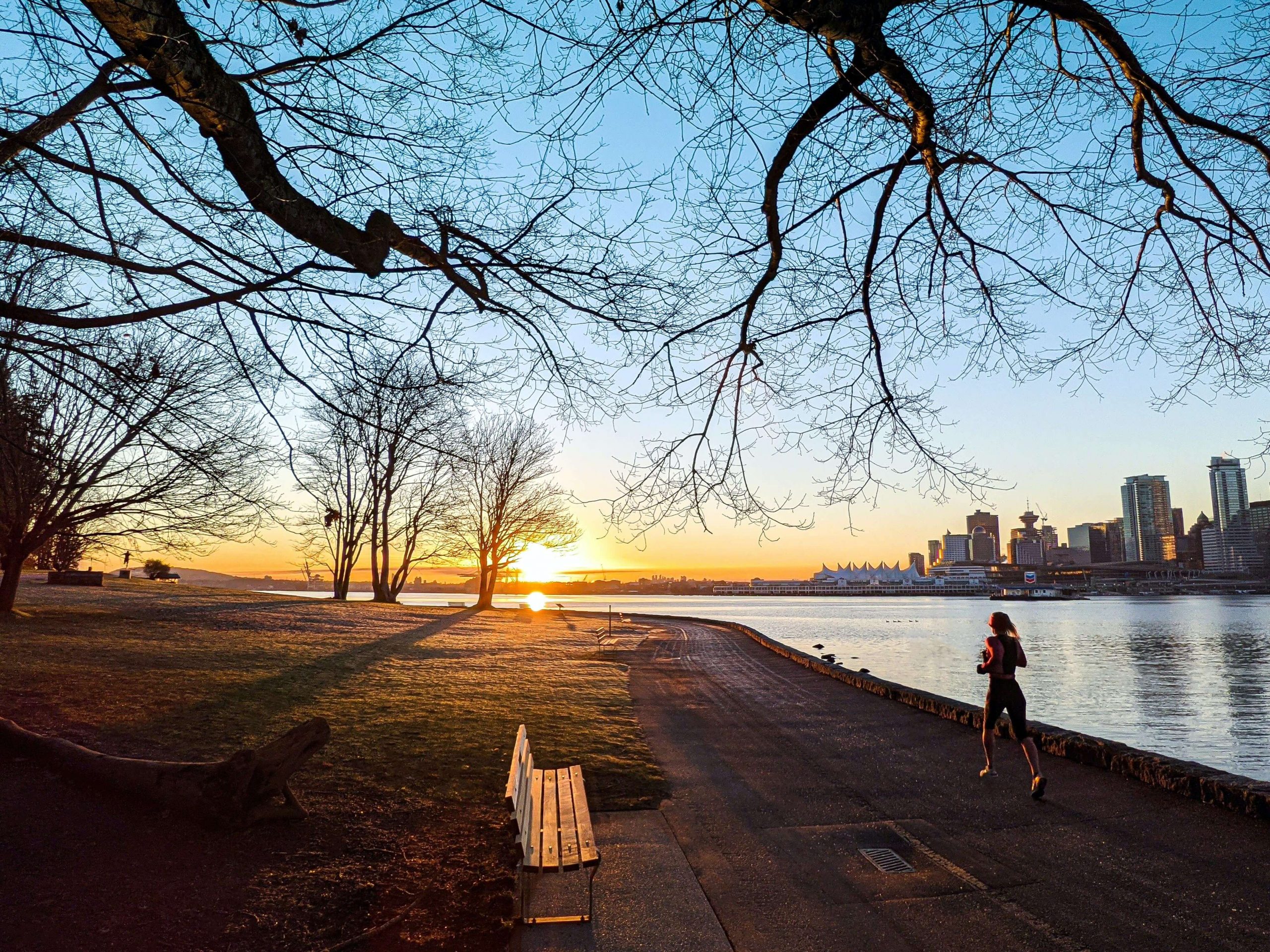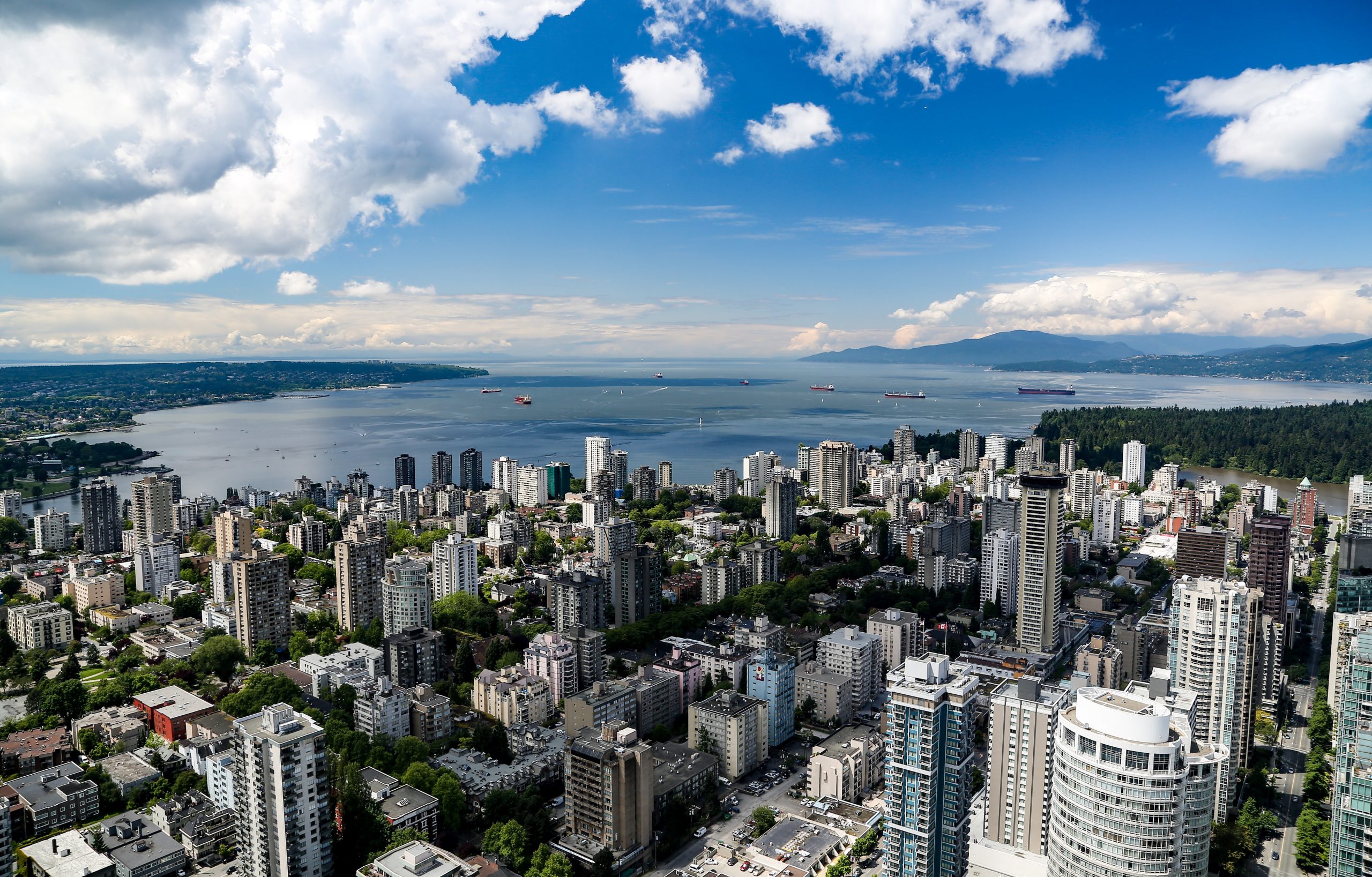1. First steps before moving to Canada
Visa requirements
If moving to Canada is next on your bucket list, the first thing you must do is determine why you want to relocate. This will guide you through the immigration application process, which offers various options for immigrating to Canada
After identifying the method you would like to apply through, fill out the necessary forms that are relevant to your application. If you are applying through Express Entry, you can create an online profile, which will expedite the process. For other options, simply complete the required forms and send your application to officials in Canada.
For your visa application, you could use any of the following methods:
Express Entry Visa
The Express Entry Visa is most suitable for professionals and skilled trade workers who have at least one year of full-time work experience. When applying through this method, your age, education, and field you work in will be considered.
Business Start-Up or Investment Visa
The Start-up Visa Program is recommended for entrepreneurs and business owners who wish to relocate to Canada. Investors with a minimum net worth of $10 million can also apply for immigration through this method.
Family Sponsorship Visa
If you have a family member who is already a resident in Canada and can sponsor your immigration, the Family Sponsorship Visa is best advised for you. If your spouse is a citizen or has been given permanent residence, you should apply through this visa.
Self-Employed Visa
The name of the Self-Employed Visa says it all. You need to be self-employed. But this is not the only requirement, you’ll need to score a certain amount of points on a selection grid made to determine if you’ll make a contribution (economic, cultural or athletic) to Canada.
Caregivers Visa
The Caregivers Visa is suitable for people who plan to be caregivers to a Canadian citizen or someone that lives in the country. You can become a permanent resident through this route, or simply work temporarily.
Finding a job
Finding a job in Canada when moving from New Zealand involves several steps. To begin, research the Canadian job market and gain an understanding of the specific requirements for your field. In Canada, some of the most in-demand jobs include electrical engineering, nursing, administrative positions like financial advisors, customer service representatives, accountants, project managers, administrative assistants, and truck drivers.
Next, update your resume and tailor it to the Canadian resume format, highlighting your relevant skills and qualifications. You can use websites like LinkedIn, Indeed, Joblist, and local Canadian job boards to search for job openings. Additionally, consider networking through professional organizations and LinkedIn groups to expand your job search and increase your chances of finding suitable employment.
Getting there
To travel from New Zealand to Canada, the quickest and most convenient option is by air. Before your journey, ensure your passport is valid for your intended stay in Canada and secure the necessary visa or residence permit, if required.
Book a flight to a major Canadian city like Toronto, Vancouver, or Montreal from an international airport in New Zealand such as Auckland, or Wellington. The flight duration may vary, but a nonstop flight typically takes around 14 to 18 hours. Upon arrival in Canada, be ready to complete the necessary immigration and customs procedures to begin your new adventure in this North American destination.
What should I look for in an International Moving Company?
You can easily move your things from New Zealand to Canada by air, but make sure the moving company you hire is reliable and trustworthy. When opting for an international moving company, here’s what you should look for:
- Insurance is included (Always ask what’s included).
- Rates are not extravagant (Get quotes from multiple moving companies).
- They have good reviews.
- Excellent customer service and transparency are their priorities.
How Can I Ship my Car to Canada?
If you’re a car owner planning to relocate to Canada, you must decide what to do with your vehicle. You can either sell it before leaving New Zealand or have it shipped to you by a car shipping company.
With this in mind, shipping can be a great option. However, how easy is it to find a reliable car shipping company that will safely transport your car?
Since you will be a newbie in Canada, finding the right shipping company for you might be a bit of a task. However, several car shipping companies offer the best services at great prices.
Must dos before your arrival
- Define your required visa or permit to enter and stay in Canada.
- If your plan is to immigrate to Quebec for studies, consider applying for the CAQ first.
- Make sure that your passport is valid for your entire intended stay in Canada.
- Secure pre-accommodation before your move; you can start with an Airbnb.
- Learn the local language for integration, like English and French, noting that the latter is especially valuable in provinces like Quebec.
- Secure a Job Offer for a smooth Work Permit Process.
- Plan your move in advance, check international movers.
2. Upon your arrival in Canada
After arriving in Canada, you must quickly sort out some things that will make your stay a lot better. Below is a list of the first steps you should take after getting to your new location.
Must dos right upon your arrival
- Get to know your neighborhood, local stores, pharmacies, and emergency phone numbers.
- Notify your employer and get guidance on next steps after your arrival.
- Consider opening a local bank account for financial convenience.
- Check requirements for your license to drive in Canada.
- Ensure your phone is unlocked for a local SIM card.
Healthcare
Understanding the healthcare options available to you in your new location is as important as any other decisions you can make. The Canadian government runs a publicly funded Health Care System. This means taxpayers in the country mostly fund medical bills.
To register for Canadian healthcare, you are required to apply for a health card in your province. You, however, have to have lived in the country for three months before you become eligible to apply. To complete your health care registration, you would need to fill a health care coverage form, provide an ID card and documents proving that you are a permanent resident of Canada and a full-time one.
Health Insurance
New immigrants often have a waiting period before they can apply for healthcare insurance. This typically leads many to temporarily using private insurance while their interim period expires.
Setting up your cell phone
To set up your cell phone in Canada, choose a carrier and plan that suits your needs, the most known are Rogers, Bell, or TELUS. Research their coverage, visit a store or their website, provide ID, select a phone if needed. The carrier will set up your phone and SIM card. Activate your phone, set up, explore plan features, understand billing, and keep the customer support number. Be mindful of your plan details and data usage, as services in Canada can be expensive.
Getting a driver’s license
Since you are coming from New Zealand, you get to use your valid foreign full license for at least 60 days before you are required to exchange it for the driving license used in your new province. You’ll want to get more details from the government of your province. You should still get an International Driving Permit before leaving New Zealand, which will give you an official translation. This is especially useful if you move to Quebec, where the first language is French.
Having a full foreign license also means that you don’t have to take the regular driving lessons, provided you have proof of at least two years of driving experience. However, despite the free pass you might have in your first few months, you will eventually be required to trade your foreign license and require some essential documents. An original ID card, proof of driving experience, your current license, and an application fee are documents that may be required for the exchange, depending on your province.
Car Insurance
If you had your car shipped, it is advisable to have it insured in case of any accidents. Once again, be sure to do proper research and pick the car insurance that works best for you.
Setting up a bank account
As you settle down in your new location, you must have easy access to your savings, and this might require setting up a bank account. Though the law does not make it mandatory for intending workers to have a Canadian bank account, most organizations prefer their workers to have one. This makes the process of paying salaries and removing taxes easier.
While every bank has its own specific requirement, opening a bank account generally requires providing documents such as:
- Immigration papers
- Proof of permanent resident
- A valid passport
- Social Identification Number
3. Best places to live in Canada

Here you can explore the best places to live in Canada, where affordability meets your immigration aspirations. From abundant job opportunities to safe, family-friendly communities, these cities offer a high quality of life without breaking the bank.
|
Cities |
Characteristics |
|
Edmundston, New Brunswick |
Ideal for employment opportunities, especially in healthcare and engineering fields. |
|
Saguenay, Québec |
Québécoise city, known for its affordability and safety, offers some of the most affordable housing in Canada. |
|
Lévis, Québec |
Perfect for families and outdoor enthusiasts, with proximity to national parks and hiking trails. |
|
Deep River, Ontario |
Offers stunning scenery, ideal for boating, and is one of the most affordable real estate markets in Ontario. |
|
Trenton, Nova Scotia |
Offers an affordable cost of living and a small-town beachside lifestyle. |
Setting up home services
Like thousands of immigrants across Canada, you will be saddled with the problem of figuring out how to set up utilities upon your arrival in the country. To get started with your electricity setup, go online to search for energy providers in your district. After going through the list, check out their rates and pick the one most suitable for you. Some provinces only have one provider legislated by provincial laws.
Next, go to the provider’s website and set up a profile. While doing this, you will be required to enter your home address and contact details alongside some other info. Some provinces offer energy tracking apps to help you with your electricity consumption.
Setting up utilities requires some research on your part. For the Internet, explore the available online options and select the one that best suits your needs. Whether you want Satellite Internet or an Alternative Internet Service Provider, Canada has many great companies with great bundles to offer for TV and Phone as well. Some of the most popular providers in the country include Bell, Shaw, Videotron, Cogeco, TELUS, Rogers, and many others.
Should you rent or buy?
Finding the right apartment in your new location is crucial. Here are some suggestions based on various factors. If you’re a young, unmarried person looking for an apartment when moving Toronto, consider neighborhoods like Younge-Eglinton, Liberty Village, and King West. These areas are known for their vibrant nightlife, cozy apartments, and a high concentration of young professionals, offering a dynamic atmosphere.
If your plan is moving to Montreal, areas such as Hochelaga, Plateau Mont-Royal, and Griffintown are ideal for young individuals. Families might prefer Villeray, Rosemont, or the suburbs. For those moving to Vancouver, neighborhoods like Gastown, Yaletown, and Kitsilano are popular among young people who appreciate an energetic lifestyle.
In Vancouver, you would find more young people in neighborhoods like Gastown, Yaletown, and Kitsilano. If you are in tune with the youthful things of life, these are perfect locations for you.
During your apartment search, you’ll come across various types, from single rooms to one-bedroom and larger units. To assist in your search, keep an eye on newspaper ads and listings on local websites or Facebook Marketplace. When it comes to buying a home in Canada, use websites and tools that can help you find your ideal neighborhood.
Home insurance in Canada
Even as a tenant, immigrants require home insurance. To get yours, make sure to find out about the different insurance companies available and how you can save money.
4. Cost of living in Canada
Though it varies from city to city, the general cost of living in Canada is similar to New Zealand. Everything depends on how $1 NZD is worth in $ CAD. In Toronto, the most populous city in the country, renting a one-bedroom apartment would average $2,280.60.
In Montreal, the cost of living is relatively cheaper when compared to Toronto. To get a decent one-bedroom in this part of the country, you will spend an average of $1,221.81. Like Toronto, the cost of living in Vancouver can be expensive. With a one-bedroom apartment averaging $2,240.70.
To get more information on the Cost of Living of different Canadian cities:
- Cost of living in Calgary
- Cost of living in Edmonton
- Cost of living in Halifax
- Cost of living in Winnipeg
|
Category |
Monthly cost |
|
1 bed apt rent outside city center |
$1,464.67 |
|
Groceries Numbeo’s grocery list ($80.76 multiplied by 4) |
$323.04 |
|
Utilities Electricity, heating, cooling, water, garbage |
$199.02 |
|
Internet with 60 Mbps |
$85.81 |
|
Transit pass |
$105.64 |
|
Entertainment Meal, taxi, movie |
$94.46 |
|
Gym membership |
$57.30 |
|
Total |
$2,329.94 |
Grocery Stores in Canada
As a new resident of Canada, one of your first priorities will be finding the nearest grocery store. It’s essential to identify reliable stores for your day-to-day shopping. Major chains like Loblaws, including No Frills, Real Canadian Superstores, and Provigo, are widely available across Canada.
Sobeys is another significant player with multiple banners. Metro is prominent in Quebec and Ontario, while Walmart and Costco are also popular choices for your grocery needs.
What to Expect from your New Life in Canada?
Changing your location is never an easy thing. Even more, changing your country of residence is even harder. However, with all the amazing things Canada has to offer, be rest assured that in the end, all the stress would be worth it. Cheers to a new life!
5. The weather in Canada
Canada is known for its vast and diverse landscapes, experiencing four distinct seasons, each with its unique climate. Spring begins in March and lasts through May, offering cooler temperatures. Summer, from June to August, brings warm and sunny weather, with temperatures ranging from 18 °C to 28 °C, making it perfect for activities like hiking in Banff or Jasper.
During Autumn, people can enjoy the stunning foliage as forests transition into shades of red, orange, and yellow. Finally, in Winter, from December to February, cold temperatures and snowfall become the norm, with temperatures often dropping below freezing. This season is perfect for snow activities in places like Mont Tremblant.
6. What to do as a local in Canada
As a local in Canada, there are endless opportunities to explore and enjoy the country’s natural beauty and cultural diversity. Outdoor enthusiasts love taking advantage of the stunning landscapes, from hiking in the Rocky Mountains of Alberta to canoeing in the pristine lakes of Ontario.
Food lovers delight their palates with the diverse food scene, featuring famous poutine in Quebec, butter tarts in Ontario, and fresh seafood on the coasts. For people seeking fun, they attend local festivals like the Calgary Stampede or the Toronto International Film Festival to experience Canadian culture.
For extreme sports enthusiasts, participating in winter sports such as skiing and ice hockey, which are deeply rooted in the Canadian identity, is a must.
7. Fun facts about Canada
- Second-Largest Country: Canada covers 9.98 million square kilometers, making it the world’s second-largest country.
- Bilingual Nation: Canada is highly bilingual, with English and French as its official languages.
- Maple Syrup Hub: Quebec is the largest maple syrup-producing province in Canada.
- Vast Coastline: Canada boasts the world’s longest coastline.
- Hockey Birthplace: Ice hockey is thought to have originated in Windsor, Nova Scotia, in the 1800s.
- Polite Reputation: Canadians are known for their politeness and friendliness.
Conclusion
Moving from New Zealand to Canada promises an adventure filled with cultural discoveries and career opportunities. ‘The Great White North’ is a country that can captivate you with its stunning natural landscapes, from the Rocky Mountains to lush forests. But, most importantly, it’s celebrated for its multicultural cities and the warm, welcoming culture that will make you feel right at home.
As you prepare for this exciting journey, consider to research in advance the best international moving companies in Canada carefully. Finding the right mover can make your transition smoother, and less stressful. After all, your move to Canada is not just a relocation, it’s the beginning of a new chapter in your life.





